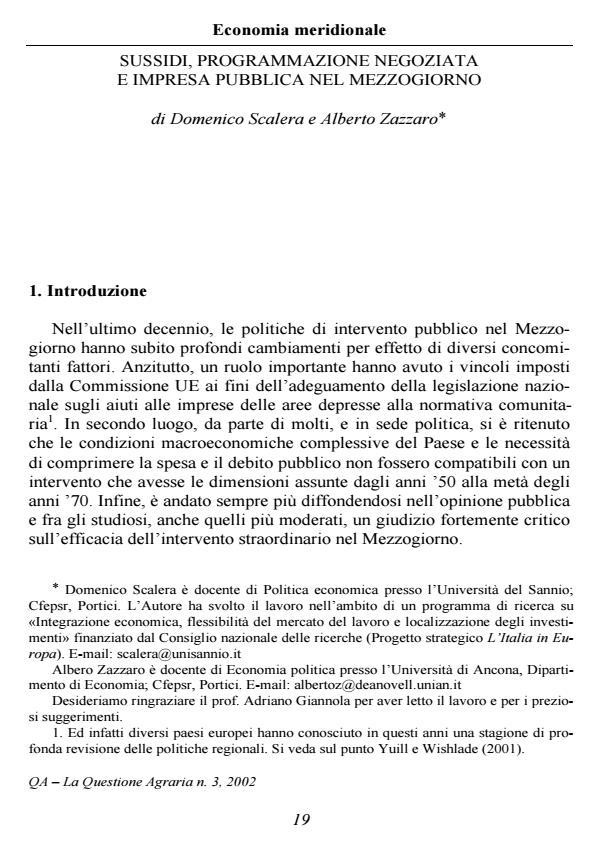Sussidi, programmazione negoziata e impresa pubblica nel Mezzogiorno
Journal title QA Rivista dell’Associazione Rossi-Doria
Author/s Domenico Scalera, Alberto Zazzaro
Publishing Year 2003 Issue 2002/3 Language Italian
Pages 26 P. File size 178 KB
DOI
DOI is like a bar code for intellectual property: to have more infomation
click here
Below, you can see the article first page
If you want to buy this article in PDF format, you can do it, following the instructions to buy download credits

FrancoAngeli is member of Publishers International Linking Association, Inc (PILA), a not-for-profit association which run the CrossRef service enabling links to and from online scholarly content.
Subsidies, Negotiated Planning and Public Enterprise in the Italian Mezzogiorno - Currently, the main form of public intervention in the Mezzogiorno are the financial subsidies and the so-called negotiated planning instruments. In this paper, we argue that both these kind of policies show a number of relevant drawbacks. Financial subsidies fail to stimulate additional investments, lead to investment oversizing, encourage clientelism, raises transaction costs and rent-seeking activities. Negotiated planning complicates the institutional context, reinforces local bureaucracies, reduces policy’s accountability, creates opportunities for political trade-offs, and makes rent-seeking profitable. By contrast, we believe that in order for the abundant resources still untapped in the Mezzogiorno to be directed towards activities favourable for development, it is necessary to debureaucratize its economy, removing opportunities for rich pickings from political groups, bureaucracies and local potentates. To this end, we argue that a different and ‘more extreme’ combination of measures, involving automatic incentives and a new active role of the public sector in the production of goods and services, could yield better results.
Domenico Scalera, Alberto Zazzaro, Sussidi, programmazione negoziata e impresa pubblica nel Mezzogiorno in "QA Rivista dell’Associazione Rossi-Doria" 3/2002, pp , DOI: